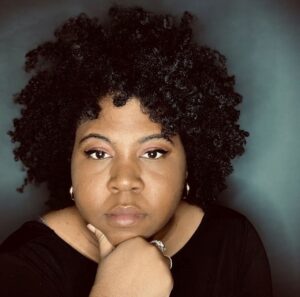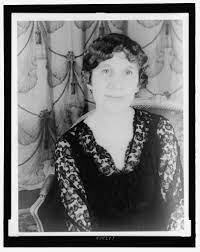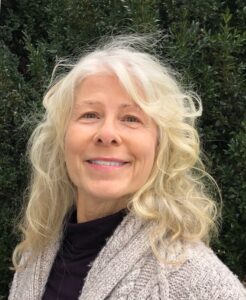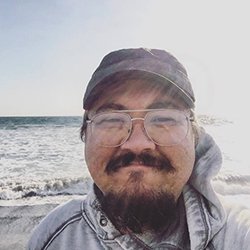The Julia Peterkin Award for POETRY:
South 85 Journal seeks submissions of previously unpublished poems of 50 lines or fewer for for the annual Julia Peterkin Literary Award for Poetry from June 1 to August 15 each year. The winning selection will receive $500 and publication in the Fall / Winter issue of South 85 Journal. Contest finalists will also be named and their work published alongside the winning selection. Submissions are read blind by an outside judge.
This year’s judge is Ashley M. Jones.
 Ashley M. Jones is Poet Laureate of the state of Alabama (2022-2026). She received an MFA in Poetry from Florida International University (FIU), where she was a John S. and James L. Knight Foundation Fellow. She is the author of three poetry collections: REPARATIONS NOW! (Hub City Press, 2021); dark // thing (Pleiades Press, 2019), winner of the Lena-Miles Wever Todd Prize for Poetry; and Magic City Gospel (Hub City Press, 2017), winner of the silver medal in poetry in the Independent Publishers Book Awards. Her poems and essays appear or are forthcoming in many journals and anthologies, including CNN, the Academy of American Poets, Poetry magazine, Tupelo Quarterly, Prelude, and The Harvard Journal of African American Public Policy, among others.
Ashley M. Jones is Poet Laureate of the state of Alabama (2022-2026). She received an MFA in Poetry from Florida International University (FIU), where she was a John S. and James L. Knight Foundation Fellow. She is the author of three poetry collections: REPARATIONS NOW! (Hub City Press, 2021); dark // thing (Pleiades Press, 2019), winner of the Lena-Miles Wever Todd Prize for Poetry; and Magic City Gospel (Hub City Press, 2017), winner of the silver medal in poetry in the Independent Publishers Book Awards. Her poems and essays appear or are forthcoming in many journals and anthologies, including CNN, the Academy of American Poets, Poetry magazine, Tupelo Quarterly, Prelude, and The Harvard Journal of African American Public Policy, among others.
- Submit up to three unpublished poems of 50 lines or fewer.
-
All submissions will be read blind. Please do not include personal information on your manuscript or file. Submissions that include identifying information will not be considered.
-
The winning poem will be awarded a cash prize of $500.
-
Four semi-finalists will also be named and published in South 85 Journal.
-
Simultaneous submissions are accepted, but please withdraw your entry if your poem is accepted elsewhere. Partial withdrawals are allowed.
- Multiple contest submissions will be considered as long as a separate submission fee is paid for each contest entry.
- Work may be submitted in both Flash Fiction and Poetry categories as long as the submission fee is paid for each contest entry.
-
All winners must be over 18 years old and reside in the U.S. in order to claim cash prize.
-
Please use 12 point, standard font. We suggest Times New Roman.
-
We consider only previously unpublished work.
-
Current and former South 85 Journal staff members are not eligible for participation.
-
Current Converse College students and Converse MFA alum are not eligible for participation.
- Results will be announced in October.

 Cary Holladay has published six short story collections, including Horse People, The Quick-Change Artist, and most recently, Brides in the Sky, as well as two novels and over 100 short stories and essays in journals and anthologies, including Alaska Quarterly Review, Arkansas Review, Five Points, The Georgia Review, The Hudson Review, Kenyon Review, Prairie Schooner, Sewanee Review, Southern Review, and Tin House. Her awards include an O. Henry Prize and a fellowship from the National Endowment for the Arts. She is Professor Emeritus at the University of Memphis. She lives in Virginia.
Cary Holladay has published six short story collections, including Horse People, The Quick-Change Artist, and most recently, Brides in the Sky, as well as two novels and over 100 short stories and essays in journals and anthologies, including Alaska Quarterly Review, Arkansas Review, Five Points, The Georgia Review, The Hudson Review, Kenyon Review, Prairie Schooner, Sewanee Review, Southern Review, and Tin House. Her awards include an O. Henry Prize and a fellowship from the National Endowment for the Arts. She is Professor Emeritus at the University of Memphis. She lives in Virginia.

 Katarina Boudreaux is a New Orleans based author, musician, dancer, and teacher. Her first novel, Platform Dwellers, is available from Owl Hollow Press. Alexithymia is available from Finishing Line Press and Anatomy Lessons from Flutter Press.
Katarina Boudreaux is a New Orleans based author, musician, dancer, and teacher. Her first novel, Platform Dwellers, is available from Owl Hollow Press. Alexithymia is available from Finishing Line Press and Anatomy Lessons from Flutter Press.